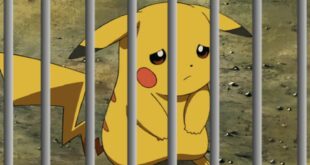It’s utterly nonsensical that anyone other than women could be blamed for the collapsing birthrate.
Women have wombs. Men will have sex with women.
It’s that simple.
They are the ones making the choice.
But of course, in the minds of women, women are never responsible for anything, ever.
Japan’s government has made tackling its falling birth rate a top priority, but with few women involved in official debate on the issue, some are making themselves heard on social media.
Japan recorded fewer than 800,000 births last year, the lowest in the country of 125 million since records began.
The prime minister has warned the trend threatens “whether we can continue to function as a society”, and fresh focus on the issue has sparked countless articles.
But one in particular, noting Japan has the highest ratio in the OECD of women aged 50 who have never had children, triggered an outpouring of responses using the hashtag “life-long childlessness”.
Tomoko Okada had long felt “ashamed” about not having children and hesitated to click on the trending topic on Twitter initially, fearing the usual barrage of criticism.
Instead, she found mostly sympathetic and nuanced discussions, with women explaining why they had been unable to start a family or, in some cases, why they had chosen not to.
“I used to strongly believe that giving birth was the ‘normal’ thing to do,” the 47-year-old freelance writer told AFP.
She tried matchmaking services hoping to find a partner, with no luck, and was left feeling guilty when her dad asked for a grandchild for Father’s Day.
But posting her experiences and reading those of others helped her feel “my way of life is also OK”.
While many developed countries are struggling with low birth rates, the problem is particularly acute in Japan. It has the world’s second-oldest population after Monaco, and its relatively strict immigration rules mean it faces growing labor shortages.
Prime Minister Fumio Kishida has vowed policies including financial aid for families, easier childcare access and more parental leave.
But with female lawmakers accounting for fewer than 10 percent of Japan’s powerful lower house, and Kishida’s 19-minister cabinet including just two women, most of those involved in the debate are men.
That has left some women feeling sidelined, or even under attack.
“Don’t blame women for the low birth rate,” tweeted Ayako, a 38-year-old Tokyo resident without children, who used the hashtag to call for recognition of “various choices” in life.
She told AFP that Japan’s traditional gender roles are central to the problem.
A 2021 government survey found that Japanese women spend around four times as long on chores and childcare as men, even with more husbands working from home.
Ayako is outspoken online, but said she finds herself “shunned” when she speaks about gender-related issues in real life, and preferred not to give her surname.
“It’s hard to raise your voice in the real world. I feel like women receive so much criticism just for expressing their opinions,” she said. On social media, however, “I’m often surprised to find other people with the same views.”
Yuiko Fujita, a media and gender studies professor at Meiji University, said social media has become a way for women in particular to discuss political and societal issues with less fear, often anonymously.
They are well on the path to feminism.
We used to think it was impossible for feminism to exist among Asians, but then we saw South Korea.
In actual fact, even if women are not acting up and making outrageous demands for free money and endless sex with black men, simply refusing to reproduce is a form of feminism.
So you could say that even though Japan is obviously nowhere near the West in terms of social degradation, they are already a feminist nation.
Anyway, it doesn’t really matter, because they’re all going to die from the vaccine. The vaccine is pretty obviously responsible for the recent drop in births (though it was already an extreme situation in Japan).
 Daily Stormer The Most Censored Publication in History
Daily Stormer The Most Censored Publication in History



